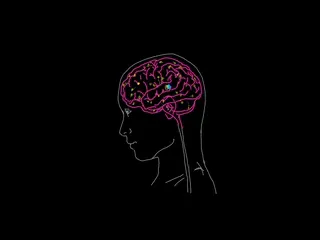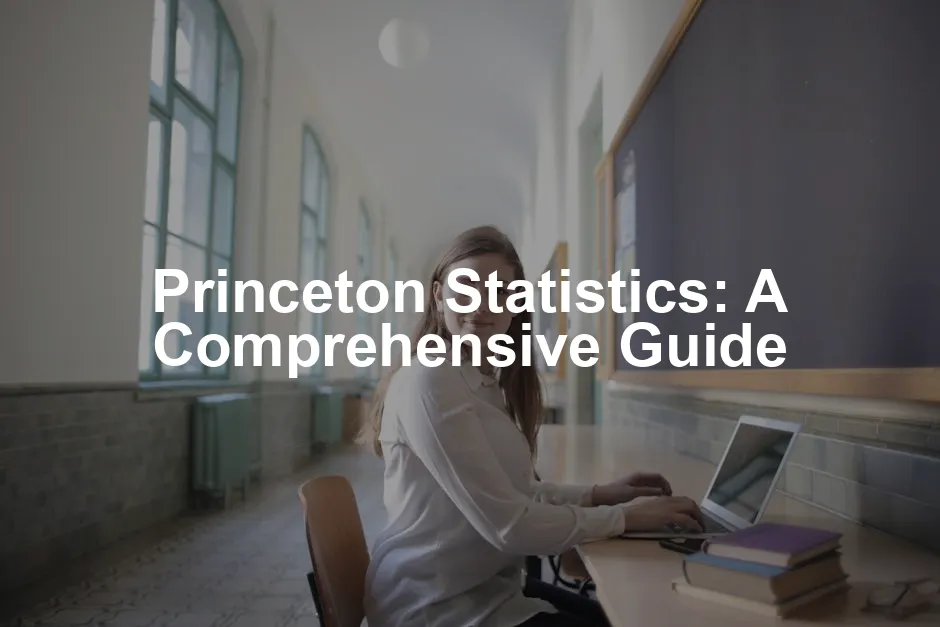Introduction
Princeton University is a prestigious institution nestled in New Jersey. Founded in 1746, it has made significant contributions to education and research. With a focus on excellence, Princeton consistently ranks among the top universities globally. In the academic landscape, statistics plays a crucial role, especially at Princeton. The university hosts the Center for Statistics and Machine Learning (CSML). This center focuses on the intersection of statistical methods and machine learning, driving innovation across various fields. Studying statistics at Princeton is paramount for students pursuing careers in economics, engineering, data science, and artificial intelligence. The program offers a robust curriculum that combines theoretical knowledge with practical applications. Students gain the skills needed to analyze data effectively and make informed decisions. They learn to tackle real-world problems, making them valuable assets in today’s data-driven society. Moreover, the ability to understand and interpret data is essential in numerous industries. From shaping economic policies to guiding engineering projects, statistics is the backbone of informed decision-making. At Princeton, students are equipped with the tools to excel in their chosen fields. This comprehensive approach ensures graduates are well-prepared to meet the challenges of a rapidly evolving job market. For those who want to dive deeper into the world of statistics, consider picking up Statistics for Dummies. This book simplifies complex concepts and is a great starting point for anyone looking to build a solid foundation in statistics. Princeton’s commitment to fostering statistical knowledge ensures its graduates are not only adept at crunching numbers but also skilled in critical thinking. The blend of rigorous training and interdisciplinary collaboration makes studying statistics at Princeton a unique and rewarding experience.
Statistics is fundamental in various fields, and for those interested in this topic, you can check out the AP statistics formula sheet.
Princeton’s Center for Statistics and Machine Learning
Overview of the Center
The Center for Statistics and Machine Learning (CSML) at Princeton University is a hub of innovation. Established to combine statistical methods with machine learning techniques, the center aims to tackle complex challenges across various disciplines. It’s where numbers meet creativity, igniting new ideas and solutions. CSML’s research spans multiple key areas, including data science, cognitive science, and engineering. The center fosters interdisciplinary collaboration, inviting scholars from diverse fields to contribute. This melting pot of expertise encourages fresh perspectives and innovative approaches to problem-solving. One notable initiative is the interaction between cognitive sciences and artificial intelligence. Researchers seek to understand how human cognition can inform AI development. This approach not only enhances AI but also sheds light on the intricacies of human thought processes. Such interdisciplinary efforts make CSML a trailblazer in advancing both statistics and machine learning.
Recent Achievements
CSML has been buzzing with excitement lately, thanks to several noteworthy accomplishments. Recently, Princeton’s own Michael Skinnider won the prestigious ‘Young Explorer Award’ grand prize. His work exemplifies the commitment to pushing boundaries in research. The center also played a significant role in the recent achievements of the 2024 Nobel Prize winners in Physics and Chemistry. Their groundbreaking discoveries in machine learning and protein design were recognized globally. CSML is contributing to a new era of research that melds traditional statistics with cutting-edge technology. Moreover, the center launched several major research projects aimed at advancing artificial intelligence. One such initiative is the AI Seed Grant Program, which encourages innovative research proposals. This program aims to support ambitious projects that explore the potential of AI in various applications. Princeton’s commitment to AI is further illustrated by the initiative called “AI for Accelerating Invention.” This program focuses on achieving faster breakthroughs in engineering disciplines. Areas like biomedicine and robotics are prime targets, showcasing Princeton’s dedication to leading the charge in AI-driven solutions. With such a vibrant atmosphere of research and collaboration, CSML continues to be a pivotal player in the realms of statistics and machine learning. The center not only enriches academic knowledge but also has a profound impact on real-world applications. As it moves forward, CSML is poised to shape the future of technology and data analysis, making it an exciting time for researchers and students alike. Through its interdisciplinary focus and recent successes, the Center for Statistics and Machine Learning is indeed carving a niche in the academic landscape. The future looks bright as it continues to foster innovation, collaboration, and groundbreaking discoveries.
Current Research and Events in Statistics
Highlighted Research Projects
Princeton University is buzzing with exciting research projects that emphasize statistics and data analysis. Researchers are making waves across various fields, each contributing to the broader understanding of complex issues. One standout project is the initiative focusing on cognitive sciences and artificial intelligence. This collaboration aims to uncover how human cognition can inform AI development. This isn’t just academic fluff; it has real-world implications. By understanding the human brain, researchers can create smarter AI systems. This could lead to advancements in everything from healthcare to personalized learning systems. Another notable project involves mapping the brain of a fruit fly. Sounds peculiar? It’s not! This research, led by Sebastian Seung, is significant for understanding human brain diseases. By building a comprehensive neuron map, scientists hope to gain insights into conditions like Alzheimer’s. Who knew fruit flies could teach us so much about ourselves?
Upcoming Events
The Center for Statistics and Machine Learning (CSML) at Princeton is not just a research hub; it’s also a vibrant community for learning and networking. Several upcoming events promise to enhance knowledge and foster connections. One such event is a seminar titled “Deep Language Models as a Cognitive Model for Natural Language Processing in the Human Brain.” Set for October 22, 2024, it features speaker Uri Hasson. Attendees can expect enlightening discussions on how naturalistic experimental paradigms can bridge cognitive neuroscience with language models. Lunch will be provided, making it a perfect chance to mingle and learn! Moreover, CSML regularly hosts workshops that cover the latest trends in statistics and machine learning. These gatherings bring together students, faculty, and industry experts. The goal? To share insights and strategies that can advance the field. Networking opportunities abound, allowing participants to connect with leaders and innovators. Events like these are crucial for anyone looking to make their mark in statistics. They provide a platform for sharing ideas and gaining fresh perspectives. Whether you’re a student, a researcher, or a professional, these gatherings can help you stay ahead in the fast-paced world of statistics.
Princeton Athletics Statistics
Overview of Athletic Statistics
Statistics play a pivotal role in assessing athletic performance. They provide insights into how teams and individual athletes perform over time. At Princeton, the statistics of the Tigers reveal the essence of hard work, dedication, and strategy. These numbers are more than just digits; they tell stories of triumphs, setbacks, and valuable lessons learned on the field. For the Princeton Tigers, these stats are crucial. They help coaches devise game plans and strategies while allowing players to reflect on their performances. By analyzing data, teams can pinpoint strengths and weaknesses. This understanding empowers athletes to fine-tune their skills and enhance their gameplay. Take the men’s basketball team as an example. Their statistics showcase the importance of teamwork, showcasing metrics like field goals made, assists, and turnovers. Each game is a new opportunity to analyze performance, leading to continuous improvement.
Specific Team Statistics
Let’s dive into the specifics of the men’s basketball and baseball teams. For the men’s basketball team in the 2023-24 season, their cumulative statistics reflect impressive performance. They scored a total of 2,235 points, averaging 77.1 points per game. In comparison, opponents managed only 1,932 points, resulting in a scoring margin of 10.4. The Tigers hit 45.8% of their field goals, surpassing their opponents at 44.4%. Three-point shooting was another strong suit, with Princeton sinking 304 three-pointers at a rate of 35.6%. The assist-to-turnover ratio stands out too, with the Tigers recording 1.8 assists for every turnover. This efficient play translates to 12.9 points off turnovers, showing how strong defense feeds into offensive success. With a total attendance of 39,354, it’s evident that Princeton basketball is not just a game; it’s an event that unites fans and players alike.

Educational Programs in Statistics
Degree Offerings
Princeton University offers a range of undergraduate and graduate programs centered on statistics and related fields. The undergraduate program immerses students in essential statistical theories and methodologies. Courses like “Introduction to Statistics,” “Statistical Inference,” and “Regression Analysis” lay the groundwork for a solid understanding of the field. Graduate programs dive deeper, allowing students to specialize in areas such as biostatistics and machine learning. Key courses include “Advanced Statistical Modeling” and “Data Analysis in R.” These programs hone skills in both theoretical and applied statistics, preparing graduates for various career paths.

For those considering further education, exploring the best statistics graduate programs can provide valuable insights.
Career Opportunities
Graduates in statistics from Princeton University have a plethora of career paths available to them. They can venture into various fields, including finance, healthcare, technology, and academia. The analytical skills honed during their studies make them highly sought after professionals. In finance, many statistics graduates find roles in data analysis, risk management, and quantitative research. Here, they apply statistical methods to inform investment strategies and assess market trends. Companies like Goldman Sachs and JPMorgan Chase often recruit Princeton alumni for these positions.

FAQs
What is the significance of statistics at Princeton?
Statistics at Princeton is vital for research across diverse fields. Statistically driven studies influence policy decisions, technological advancements, and scientific discoveries. The university’s emphasis on data analysis equips students to tackle complex problems, contributing to society’s progress.
How can I apply for a statistics program at Princeton?
Applying to Princeton’s statistics program involves several steps. Prospective students should complete the Common Application or the Coalition Application. Key components include transcripts, standardized test scores, and letters of recommendation. It’s essential to check the university’s admissions website for specific prerequisites and deadlines.
What resources does Princeton offer for statistics students?
Princeton provides a wealth of resources for statistics students. Faculty support is robust, with professors who are leaders in their fields. Students have access to cutting-edge statistical software and research opportunities, enhancing their learning experience. Collaborative initiatives, like the AI Seed Grant Program, further enrich their academic journey.
What are the career prospects for statistics graduates from Princeton?
Career prospects for statistics graduates from Princeton are bright. They typically enter data analysis, finance, academia, and technology roles. Companies like Google, Goldman Sachs, and various healthcare organizations actively recruit these graduates. The analytical skills gained during their studies make them valuable assets in any industry.
All images from Pexels




